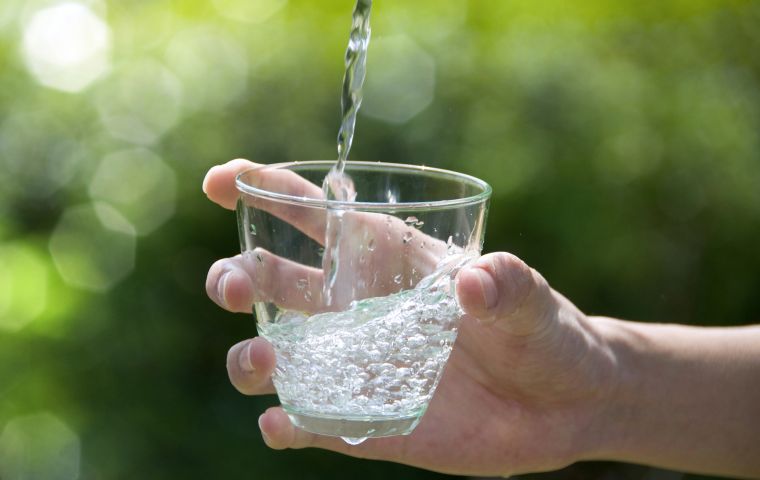MercoPress. South Atlantic News Agency
Accelerated action needed to ensure safe drinking-water, sanitation and hygiene, WHO report
 While there has been an increase in WASH budgets in some countries, over 75% of countries reported insufficient funding to implement their WASH plans
While there has been an increase in WASH budgets in some countries, over 75% of countries reported insufficient funding to implement their WASH plans Urgent action is needed globally and locally to achieve safe and sustainably managed water, sanitation and hygiene for all in order to prevent devastating impacts on the health of millions of people.
Findings from WHO and UN-Water’s Global Analysis and Assessment of Sanitation and Drinking-Water (GLAAS) report show that acceleration is needed in many countries to achieve the UN Sustainable Development Goal (SDG) 6 – water and sanitation for all by 2030.
While 45% of countries are on track to achieve their nationally-defined drinking-water coverage targets, only 25% of countries are on track to achieve their national sanitation targets. Less than a third of countries reported to have sufficient human resources required to carry out key drinking-water, sanitation and hygiene (WASH) functions.
The GLAAS 2022 report, which details the latest status of WASH systems in more than 120 countries, is the largest data collection from the greatest number of countries to date.
While there has been an increase in WASH budgets in some countries, a large number--over 75% of countries reported insufficient funding to implement their WASH plans and strategies.
“We are facing an urgent crisis: poor access to safe drinking water, sanitation and hygiene claim millions of lives each year, while the increasing frequency and intensity of climate-related extreme weather events continue to hamper the delivery of safe WASH services,” said Dr Tedros Adhanom Ghebreyesus, WHO Director-General. “We call on governments and development partners to strengthen WASH systems and dramatically increase investment to extend access to safely managed drinking water and sanitation services to all by 2030, beginning with the most vulnerable.”
The GLAAS data show, however, that most WASH policies and plans do not address risks of climate change to WASH services, nor the climate resilience of WASH technologies and management systems. Just over two thirds of countries have measures in WASH policies to reach populations disproportionately affected by climate change. However, only about one third monitor progress or allocate explicit funding to these populations.
“The world is seriously off-track to achieve SDG 6 on water and sanitation for all, by 2030. This leaves billions of people dangerously exposed to infectious diseases, especially in the aftermath of disasters, including climate change-related events,” said Gilbert F. Houngbo, Chair of UN-Water, and Director General of the International Labour Organization. “The new data from GLAAS will inform the voluntary commitments the international community will make at the UN 2023 Water Conference in March, helping us target the most vulnerable communities and solve the global water and sanitation crisis.”




Top Comments
Disclaimer & comment rulesCommenting for this story is now closed.
If you have a Facebook account, become a fan and comment on our Facebook Page!